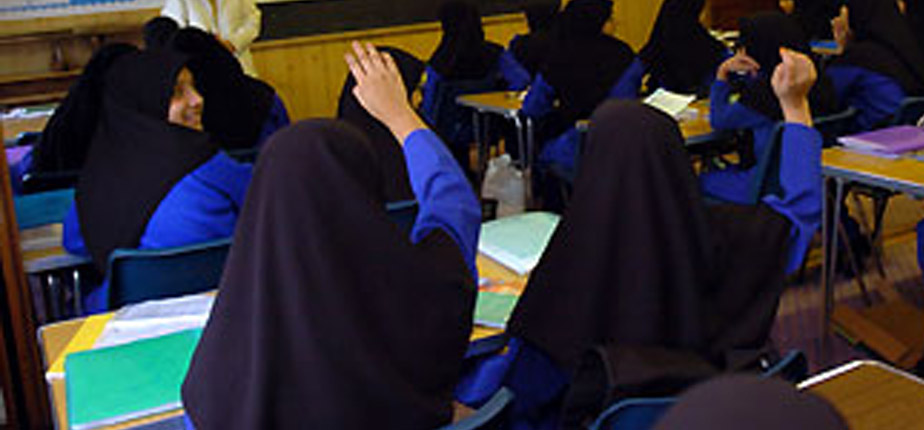
The imposition of Value Added Tax (VAT) on Muslim schools has sparked a heated debate across the country, with educational leaders, religious organisations, and parents expressing concerns about the financial strain this policy places on both institutions and families. As the tax burden increases, the discussion has shifted from the immediate financial impact to the broader social, cultural, and educational consequences of such a policy.
This article explores the issues surrounding VAT on Muslim schools, the reactions from various stakeholders, and the potential long-term impact on the future of Islamic education in the UK.
VAT is a consumption tax levied on goods and services, with educational institutions traditionally exempt due to their non-profit status. However, recent changes in taxation policy have extended VAT to include educational institutions that charge tuition fees, though state schools remain exempt. Other recent exemptions include military families and gifted students in the arts.
In response, an alliance of small independent faith schools representing over 350,000 students has been lobbying for an exemption for schools with fees below £5,000. This proposal was recently rejected. As a result, Muslim schools have been added to the list of taxable entities, sparking significant concern among Muslim school leaders and parents.
A typical state school place costs the Treasury around £7,500, which raises questions about the fairness of imposing VAT on schools with fees under £5,000. Julie Robinson, Chief Executive of the Independent Schools Council, which represents over 1,400 independent schools, has warned that the future of many Muslim schools in the UK is at risk due to Labour’s plans to impose VAT on independent school fees. She states: “Many of the faith schools we represent are small, low-fee, and supported by their local communities. It would be devastating for families of faith if these schools, which often have fees lower than the per-pupil spending in state schools, were to disappear from the educational landscape as a result of VAT.”
Many Muslim schools operate on tight budgets and rely heavily on community support and donations, with limited government funding. The imposition of VAT represents a significant financial burden. Schools fear additional tax could lead to higher tuition fees, making education less accessible for lower-income families and potentially breaching their human rights.
An analysis of the accounts of 89 Islamic independent schools commissioned by the Association of Muslim Schools (AMS) and conducted by a former VAT inspector suggests that 70% of these schools could become financially unviable and face potential closure under the new policy. The average fees for Muslim schools stand at £3,000.
A spokesperson for the AMS UK says: “Following the Prime Minister’s remarks about increased support for faith-based schools, we anticipated favourable outcomes. However, the imposition of VAT on small independent faith schools and the removal of business rates relief for schools that are essentially community schools—mistakenly grouped with elite private schools—is deeply disappointing and contradict those commitments.”
The Labour Party, which has already been losing support from Muslim voters over its stance on the Gaza conflict, now faces further challenges. The VAT issue could deepen these problems for the Prime Minister’s party.

The introduction of VAT could have severe consequences for parents who already struggle with the rising cost of living. An increase in tuition fees due to VAT would place an additional burden on household budgets.
For many Muslim families, the decision to send their children to a faith-based school is not only about academic achievement but also about nurturing religious and moral values. Higher fees could force parents to make difficult choices, potentially limiting access to these schools and affecting the diversity and inclusivity of Islamic education. This could also be seen as a violation of their human rights.
The government defends the VAT imposition, arguing that it is part of broader efforts to standardise the taxation system and ensure fairness across all sectors. It claims that VAT on private schools will raise sufficient revenue to fund initiatives like recruiting thousands of teachers, supporting breakfast clubs in schools, and investing in student well-being. However, critics argue that this policy disproportionately affects minority communities. Muslim schools often play a critical role in preserving cultural and religious identity, and many advocacy groups have called for an exemption or reduction in VAT rates for religious schools. These institutions are seen as vital to social cohesion and community development.
An independent analysis by Shipleys Tax Advisors, conducted by Ian Spencer, suggests that if the Treasury continues without granting an exemption, the resulting school closures could cost the government over £70 million. This is based on the average annual cost of £7,690 per pupil for educating displaced children in state schools.
Several potential solutions have been proposed. One of the most widely discussed is creating a special VAT exemption for religious schools, similar to the tax breaks enjoyed by other non-profit organisations. Others suggest that the government should introduce subsidies to ease the financial burden on Muslim schools, particularly those serving low-income communities.
The issue of VAT on Muslim schools is emblematic of broader discussions around equity, access, and the role of government in supporting diverse educational systems. As the debate unfolds, it is essential for all parties involved to engage in open and constructive dialogue to find a solution that ensures the continued viability of Muslim schools without placing undue strain on families or institutions—and potentially violating human rights.
Families are already challenging the policy in the High Court, asserting that the added VAT will deprive them of access to faith-based education, which they argue could constitute a breach of their human rights.
At the heart of this debate lies the recognition that education is not just about academics but about nurturing future generations in a way that respects their faith, values, and identity. It is a delicate balance that requires careful consideration of both financial realities and the social importance of Islamic schools in our communities.
Ashfaque Chowdhury,
Chair, Association of Muslim Schools UK